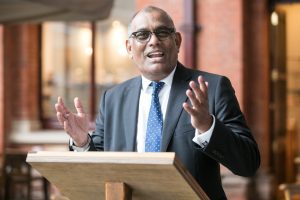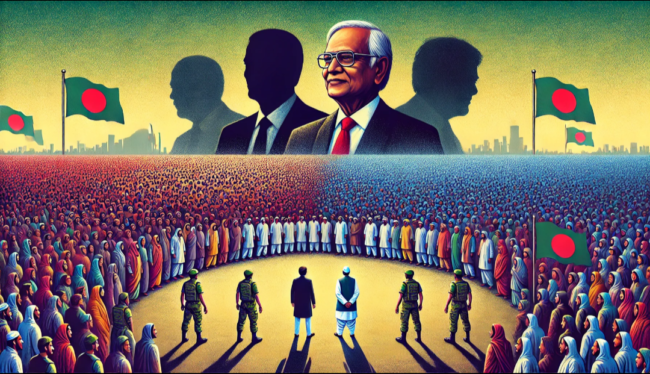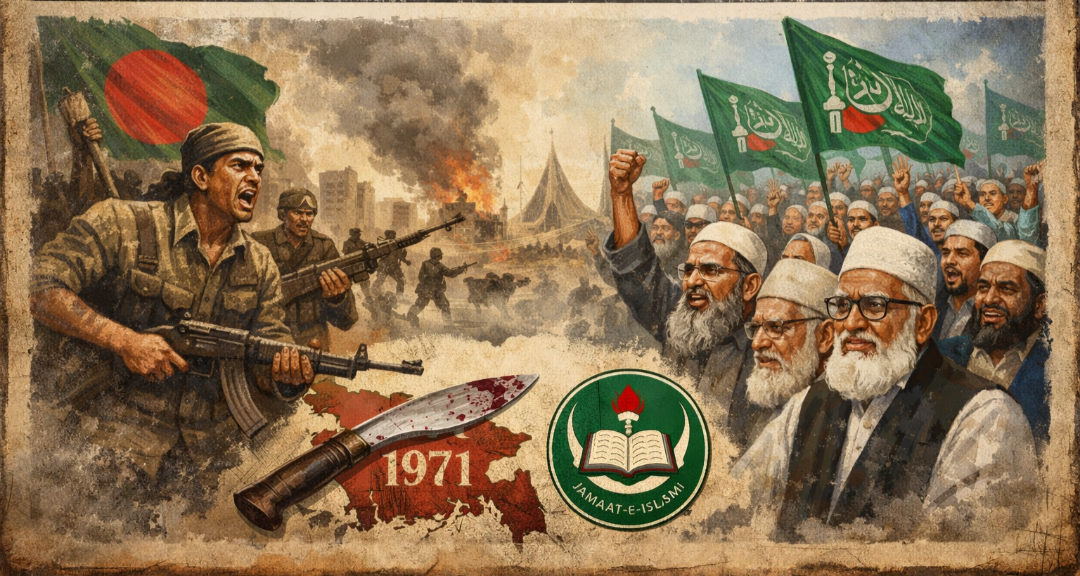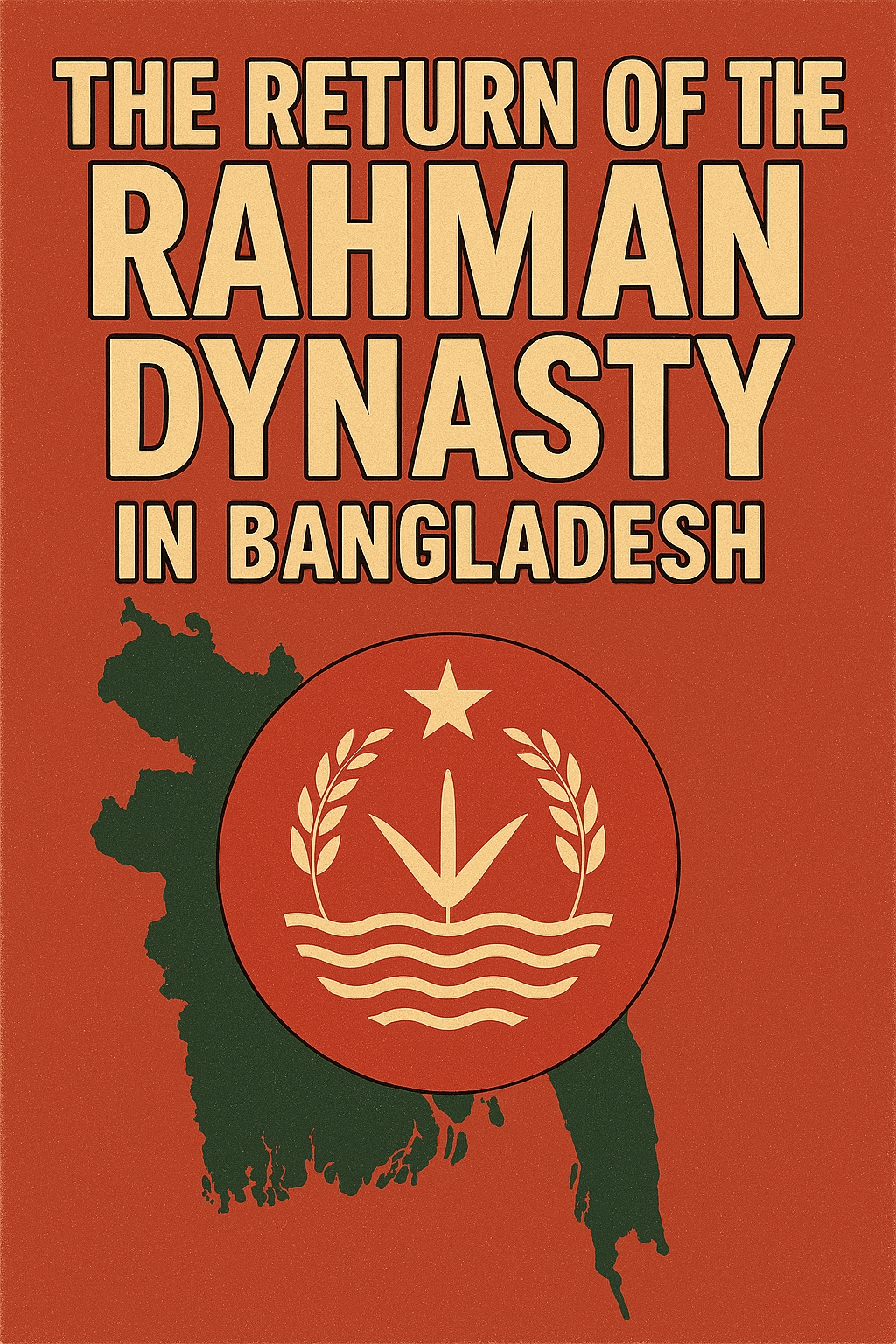Bangladesh’s Political Crossroads: “Is the Minus Two Strategy in the Offing?”

Imran Chowdhury BEM
Bangladesh finds itself at another critical juncture in its political history, as echoes of the controversial “minus two” policy, first introduced during the caretaker government period from 2007 to 2009, resurface under the newly formed interim government. With renewed attempts to diminish the influence of the two major political forces—the Awami League (AL) and the Bangladesh Nationalist Party (BNP)—a new wave of tension and speculation is sweeping the country.
The government’s moves have sent shockwaves through the political establishment, raising concerns over whether a seismic shift in Bangladesh’s political landscape is imminent. While proponents claim this overhaul could end decades of dynastic rule and partisan rivalry, others fear it could destabilise the country, leaving its people to navigate yet another uncertain political future.

The Origins of the “Minus Two” Doctrine
The “minus two” doctrine first emerged during the One-Eleven crisis, a period of military-backed interim rule from 2007 to 2009 aimed at breaking the cycle of political deadlock between the country’s two largest parties. It was an ambitious and unsuccessful attempt to remove the heads of the Awami League and BNP, Sheikh Hasina and Khaleda Zia, from their dominant roles in Bangladeshi politics. The doctrine was widely criticised for undermining democratic principles and eroding the political rights of the electorate. It failed due to public backlash and a lack of sustainable political alternatives.
Today, the spectre of that doctrine reappears, with some observers arguing that a similar approach is being implemented under the guise of “youth-led reform” and efforts to dismantle deeply ingrained political loyalties. The objective, they say, is to create space for new voices, disband the entrenched powers, and recast Bangladesh’s future away from AL-BNP rivalry. However, history has shown that such policies have unintended consequences, and the lingering fear is that the interim government’s actions could have a destabilising effect.
Political Marginalization of the BNP and Awami League
The Awami League and BNP have dominated Bangladesh’s political arena for decades, each with strong grassroots support and a deep connection to the electorate. Despite their differences, these two parties have come to represent two distinct visions for Bangladesh’s identity, economy, and international relations. However, the interim government’s latest moves appear designed to push both parties into political irrelevance, seeking to strip them of their electoral foundations and dismantle their influence.
The BNP, in particular, perceives this initiative as a direct threat to its existence. Party leaders argue that powerful interests orchestrate a “deep-rooted political divide” to sideline the party. They view the government’s rhetoric as an attempt to sow division, weakening the BNP’s hold over its traditional voter base. “This is not reform,” said one senior BNP leader, speaking on the condition of anonymity. This is a plan to annihilate us and silence our voice in Bangladesh’s future.”
Likewise, within the Awami League, there is growing suspicion that the interim government’s policies could signal the end of their own longstanding influence. The rhetoric of wholesale change, while appealing to younger generations, is stirring anxiety among the party’s leadership and grassroots members. They, too, are questioning whether their political legacy is under threat.
Youth-Led Change or Political Manipulation?
The interim government’s strategy has been heavily influenced by a network of youth coordinators, which marks a shift from the traditional elderly leadership of both AL and BNP. This youth-driven approach is necessary to modernise Bangladesh’s governance structure, emphasising anti-corruption, transparency, and progressive values. Yet, it raises questions about whether these youthful coordinators have the experience, vision, or support to address the complexities of governing a country with such a storied and tumultuous political history.
Critics argue that while the youth coordinators bring fresh perspectives, their limited experience could be exploited by those with vested interests who aim to maintain control behind the scenes. The idea of “youth-led” politics, they claim, might simply be a mask for a politically engineered plan to sideline the Awami League and BNP. “The power struggle at play here goes beyond just age or experience,” said a Dhaka-based political analyst. “It’s about reshaping Bangladesh’s political landscape in a way that eliminates those who have historically shaped it.”
The youth movement’s promise of a political “tsunami” sounds appealing to many, especially the younger generation that seeks change. But observers warn that unless managed carefully, the surge in support for wholesale reform could spiral into an ideological schism, dividing Bangladesh’s people along generational lines. The prospect of two generations locked in political conflict and competing visions of Bangladesh’s identity and future could fuel more instability than unity.
Fear Amongst the Ranks
Within the Awami League and BNP, rank-and-file members are grappling with fears of being stripped of their relevance. They worry that the interim government’s policies will erode their electoral bases, making it nearly impossible for either party to regain power. “There is a sense of betrayal and loss,” said one BNP grassroots organiser in Chittagong. “We have dedicated our lives to this party, to these ideals, and now we are being told that we are no longer needed. It’s a hard pill to swallow.”
In rural Bangladesh, where political loyalties are often as steadfast as familial ties, the attempt to dismantle the AL and BNP carries additional risks. Local leaders in these areas fear the erosion of community-based political organising and wonder whether a new “youth-led” approach can bridge the gap between generations.
Public Opinion: Is “Minus Two” a Path to Progress or a Step Backward?
The public reaction to the potential resurgence of the “minus two” policy is divided. On the one hand, some Bangladeshis believe that removing the Awami League and BNP from power would break a cycle of stagnation and open doors for new leadership. “Our country has been locked in a political seesaw between these two parties for decades,” said a university student in Dhaka. “It’s time for something new.”
On the other hand, many fear that eliminating the two main political forces will disrupt Bangladesh’s democratic process and prevent the electorate from having a meaningful choice. “These parties represent our history, our struggles, and our future,” said a factory worker in Gazipur. “Without them, we lose something essential.”
Whether the public will support or resist this change remains to be determined. Analysts suggest that the interim government’s success—or failure—will depend on its ability to manage the complex emotions and loyalties tied to the country’s political past. If the government fails to provide a credible alternative to the two-party system, the public could push back, potentially leading to protests, political unrest, or even violence.
The Road Ahead: A Balancing Act
As Bangladesh stands at this political crossroads, the stakes are higher than ever. The interim government has an opportunity to redefine Bangladesh’s future, but it also risks alienating a significant portion of the population. Whether this attempt at change is a genuine effort to foster progress or merely a short-lived experiment that will further divide the nation remains.
The coming months will be critical. If the government’s approach succeeds in laying the foundation for a new political order, it could become a blueprint for other nations facing similar issues. But if the policy backfires, it could destabilise Bangladesh, with its people again caught in the crossfire of political ambition and upheaval.
The revival of the “minus two” strategy raises a critical question for Bangladesh’s future: Can the country truly move forward without the two parties that have defined its past, or is this new rhetoric merely the start of another round of political turmoil? As both supporters and opponents of the policy brace for what lies ahead, the people of Bangladesh are left wondering whether they are witnessing the dawn of a new era or the re-emergence of old battles in a new guise.
Can the country truly move forward without the two parties that have defined its past, or is this new rhetoric merely the start of another round of political turmoil? Is it true, or is it pure speculation? Let time decide.
Imran Chowdhury BEM is a respected strategic thinker, renowned for his insightful analysis of geopolitical issues, history, and diaspora affairs. As an author of numerous books and over a thousand newspaper articles, he brings a seasoned perspective to global politics, focusing on social cohesion and the dynamics of South Asian geopolitics. His writings explore the intersections of history, sovereignty, and the Bangladeshi diaspora’s role within broader socio-political landscapes. Imran’s deep understanding of cultural identity and global alliances has positioned him as a leading voice in promoting cultural preservation, community empowerment, and nuanced discourse on international relations.





